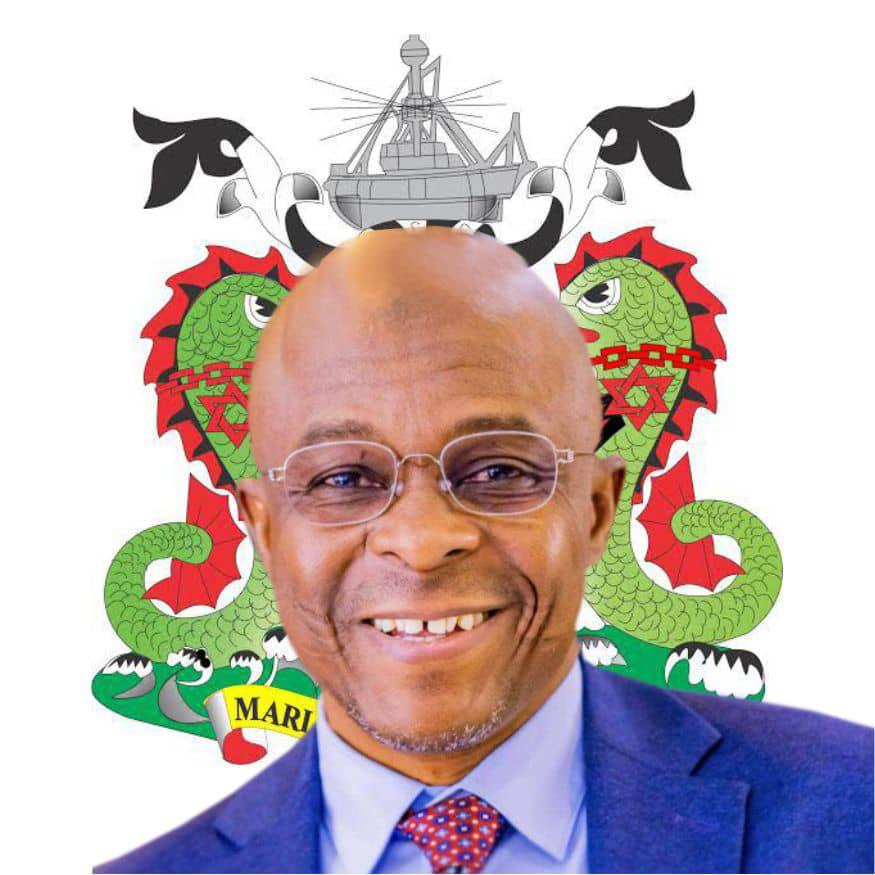The recent appointment of Dr. Abubakar Dantsoho as the Managing Director of the Nigerian Ports Authority (NPA) brings a renewed sense of hope to the nation’s seaports. With his impressive academic credentials and extensive experience in the maritime industry, Dantsoho is well-equipped to tackle the myriad challenges plaguing the sector.
The numerous challenges facing Nigerian seaports include congestion and delays as a result of inefficient Customs clearing processes; outdated and insufficient port facilities, equipment, and technology, hindering efficient operations; widespread corruption and bribery among port officials and agencies which slow down cargo clearance and increase costs, as well as theft, piracy, and armed robbery which threaten cargo safety and security.
Other challenges facing the ports include complex and time-consuming administrative procedures; lack of intermodal transport connectivity, especially inadequate road and rail links to the ports; excessive charges, fees, and levies leading to increased cost of doing business; pollution, poor waste management and ecological degradation issues, and limited deepwater capacity, which restricts the size of vessels that can berth, thereby limiting trade volumes. Additionally, limited automation and reliance on manual processes at the ports have reduced efficiency and increased processing errors, while overlapping roles, conflicting regulations, and lack of coordination among government agencies have continued to create confusion in the system.
The non-renewal of expired port concession agreements has also tremendously affected port operations because without a new agreement in place, port terminal operators are unable to enter into long-term financing agreements with lending institutions, thereby impairing their ability to invest in upgrading facilities at the port. Sadly, the process of renewing the expired port concessions agreements have become slow, cumbersome, and opaque.
Mr John Jenkins, the Managing Director of Ports & Cargo Handling Services Limited, one of the terminal operators that have waited for more than five years for renewal of the port concession agreement with the Federal Government, captured the frustration facing port operators as a result of the delayed renewal.
“Ports & Cargo remains one of the leading terminal operators in Nigeria with our record of exceptional service delivery, trade facilitation, many jobs created, and diverse social responsibility footprints across the country. This delay in our concession renewal has tremendously affected our terminal, as our customers are worried about the future of their operations here. Without a new concession in place, they are hesitant to enter into long-term agreements, which is not good for our business,” Jenkins lamented to a team of the Nigerian Shippers’ Council that visited him on Thursday 8th August 2024.
There are five concession agreements that have been due for renewal for more than five years, but sadly, the renewal process has been plagued with uncertainty, lengthy processes and complex procedures to the detriment of the ports.
Nigeria’s port concession programme has been a monumental success and a model for many African countries. The port concession regime has reduced the waiting time of vessels coming into our ports from an average of 45 days before 2006 to less than three days at present. It has also helped in eliminating the notorious congestion surcharge hitherto imposed on our ports by major shipping lines under the aegis of the Europe-West Africa Trade Agreement (EWATA). The elimination of the port congestion surcharge has resulted in saving Nigeria’s trading community over US$500 million annually.
Additionally, port concession has led to the injection of private capital into port development. This has helped to free up government resources for other developmental purposes and led to the modernisation of the country’s seaports. Other benefits of Nigeria’s port concession include improved availability of cargo handling equipment, increased competition among terminal operators, improved welfare and training of port workers and the institution of a condition of service for dockworkers. Delaying the process of renewing expired port concession agreements is therefore not only inimical to the ports, it could reverse the progress made over the past 18 years. Delayed renewal of the agreement also inevitably denies Nigeria of much needed foreign direct investment and the importation of foreign capital.
To leave a lasting legacy, Dantsoho must tackle the challenges facing the ports head-on. He must tackle the pressing issue of non-renewal of expired port concession agreements, which has hindered terminal operators’ ability to secure financing for upgrades.
He must also prioritise the modernisation of port facilities, adoption of technology, and automation of processes to enhance efficiency and reduce manual errors. Strengthening intermodal transport connectivity, promoting private sector participation, and addressing regulatory issues are also crucial. By addressing these challenges, Nigeria can create a more conducive environment for private investment, driving growth, efficiency, and competitiveness in the port sector.
With his expertise and experience, Dantsoho has the opportunity to transform Nigerian ports into a hub of efficiency, safety, and competitiveness. We urge him to seize this moment and work hard to revitalise the sector, leaving a lasting legacy for generations to come.
Copyright Ships & Ports Ltd. Permission to use quotations from this article is granted subject to appropriate credit given to www.shipsandports.com.ng as the source.

